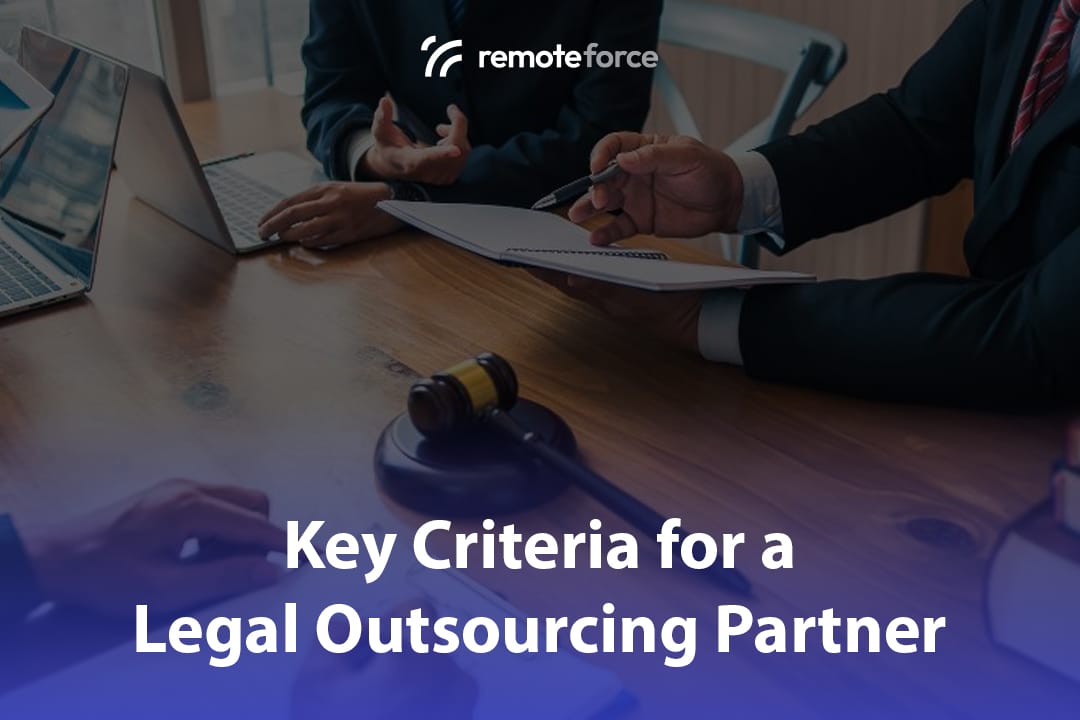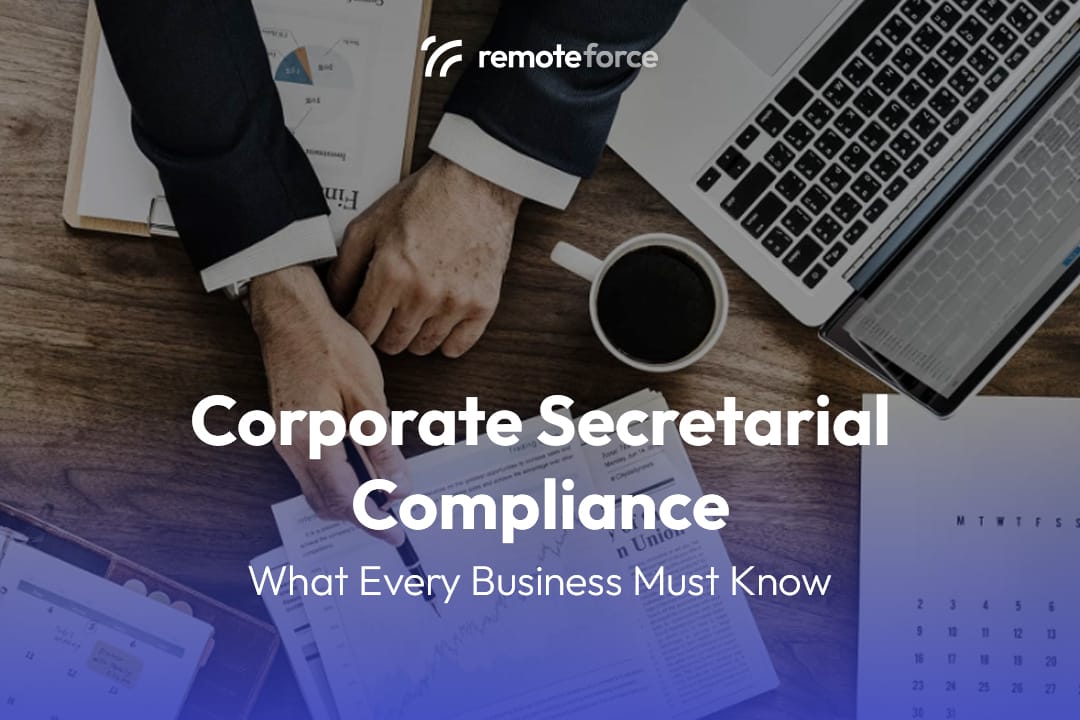When a business decides to leverage outsourcing for specialized functions—from digital marketing campaigns to complex legal or accounting support—the decision hinges on finding a partner that is both highly skilled and completely trustworthy in the eyes of the law.
The risk of partnering with a non-compliant or unreliable vendor can lead to severe penalties, co-employment liabilities, financial loss, and irreversible damage to your brand.
This guide details the key criteria you must evaluate to ensure your outsourcing partner is legally sound and a truly reliable extension of your operations.
Table of Contents
ToggleLegal and Compliance Vetting Criteria (The Non-Negotiables)
A trustworthy outsourcing partner operates with absolute transparency and adherence to all local and international laws.
Valid Business Licenses and Registration
The company must possess the correct, current operating licenses required by their jurisdiction.
- Official Registration: Verify their registration status with the relevant governmental body (e.g., the local equivalent of the Department of Commerce or Corporate Affairs Commission). Ask for the official Business Identification Number (NIB) or equivalent.
- Industry-Specific Permits: Ensure they have any necessary licenses for specialized services. For example, a firm offering accounting services might need certification from professional accounting boards, while a manpower supply vendor needs specific labor brokerage permits.
- Tax Compliance: Confirm they have a valid Taxpayer Identification Number (TIN) and can provide proof of timely tax reporting and payment.
Labor Law and Employment Compliance
The most significant legal risk in outsourcing comes from labor disputes. A trusted vendor mitigates this risk entirely.
- Social Security and Benefits: The vendor must enroll all outsourced employees in mandatory social security, pension, and health insurance programs, and provide proof of continuous contributions.
- Employment Contracts: Review samples of their standard employment contracts (vendor-to-worker). They must clearly define the worker as an employee of the vendor, comply with local minimum wage, overtime, and working hour regulations, and specify termination rights.
- Co-Employment Mitigation: The vendor’s contracts and operational structure must clearly establish them as the sole legal employer, protecting the client from liability (a crucial factor for RemoteForce in avoiding co-employment risks for clients).
Data Security and Privacy Adherence
Trust is broken the moment data is compromised. This is paramount for services involving sensitive client or customer information.
- NDAs and IP Transfer: Every contract must include a strict Non-Disclosure Agreement (NDA) and a clause that ensures all Intellectual Property (IP), code, or creative work generated is immediately and irrevocably transferred to the client.
- Regulatory Compliance: The vendor must adhere to relevant data protection laws (e.g., GDPR, CCPA, or local data privacy acts). Ask about their data storage locations and encryption protocols.
- System Security: Inquire about their IT security posture, including use of secure VPNs, restricted physical access to workstations, and regular security audits.
Criteria for Trust and Operational Excellence
Beyond legality, trust is built on reliability, transparency, and operational quality.
Experience, Portfolio, and Relevant Expertise
A trusted company has a proven track record of successful outcomes in your required field.
- Specialization: Look for specialization, not generalization. If you need web development, they should demonstrate deep expertise in modern tech stacks (e.g., MERN, Python/Django), not just basic IT support.
- Relevant Portfolio: Ask for case studies, client success stories, and references from companies similar in size or industry to yours. A strong portfolio minimizes the risk of poor quality work.
- Quality Assurance (QA) Process: Understand how the vendor manages quality. Do they have peer reviews, code testing, or strict internal compliance checks for their accounting or secretarial teams?
Transparency in Pricing and Service Level Agreements (SLAs)
A trustworthy partner is honest about costs and committed to metrics.
- Detailed Cost Breakdown: Request a transparent breakdown of the service rate, showing the costs for the employee’s salary, benefits, overhead, and the vendor’s management fee. Avoid hidden fees.
- Measurable SLAs: The contract must include clear, measurable performance indicators (KPIs) and service commitments. Examples include guaranteed response times, uptime percentages, and quantifiable project milestones.
- Exit Strategy: A reliable vendor includes a fair, defined exit clause detailing how knowledge transfer, data retrieval, and project handover will occur if the contract ends.
Strong Communication and Cultural Fit
Miscommunication is the number one failure point in outsourcing partnerships.
- Language Proficiency: Ensure the assigned team members have the necessary proficiency in your working language to handle complex tasks without ambiguity.
- Proactive Reporting: The partner should provide regular, proactive status reports and flag potential issues immediately. They should be solution-oriented, not just task-takers.
- Ethical Alignment: Look for a vendor whose business ethics and company culture align with yours. This alignment ensures smoother collaboration and reduces the risk of conflict over controversial business practices.
7. Staff Management and Retention
A stable outsourcing company is built on a stable workforce.
- Employee Retention Rate: Request data on their employee turnover rate for outsourced staff. A high rate suggests a poor work environment and translates to constant retraining and lost project knowledge for you.
- Recruitment Process: Understand their hiring and vetting process. A trusted vendor ensures that every candidate placed on your project has gone through rigorous background checks and technical skills assessments.
Conclusion
Choosing an outsourcing partner requires a due diligence process that balances expertise with legal integrity. You must go beyond impressive portfolios and competitive pricing to scrutinize the foundational legal and compliance structures of the firm.
By making the seven criteria above your checklist, you significantly reduce legal risks, ensure worker protection, and secure a partnership that is built on trust and operational excellence. This careful vetting process is exactly what allows firms like RemoteForce to deliver specialized talent—from legal professionals to digital marketers—with guaranteed compliance and peace of mind.
Ready to partner with a trusted expert? Ensure your next strategic step is a legally sound one. Get in touch with us today on LinkedIn or Facebook!



